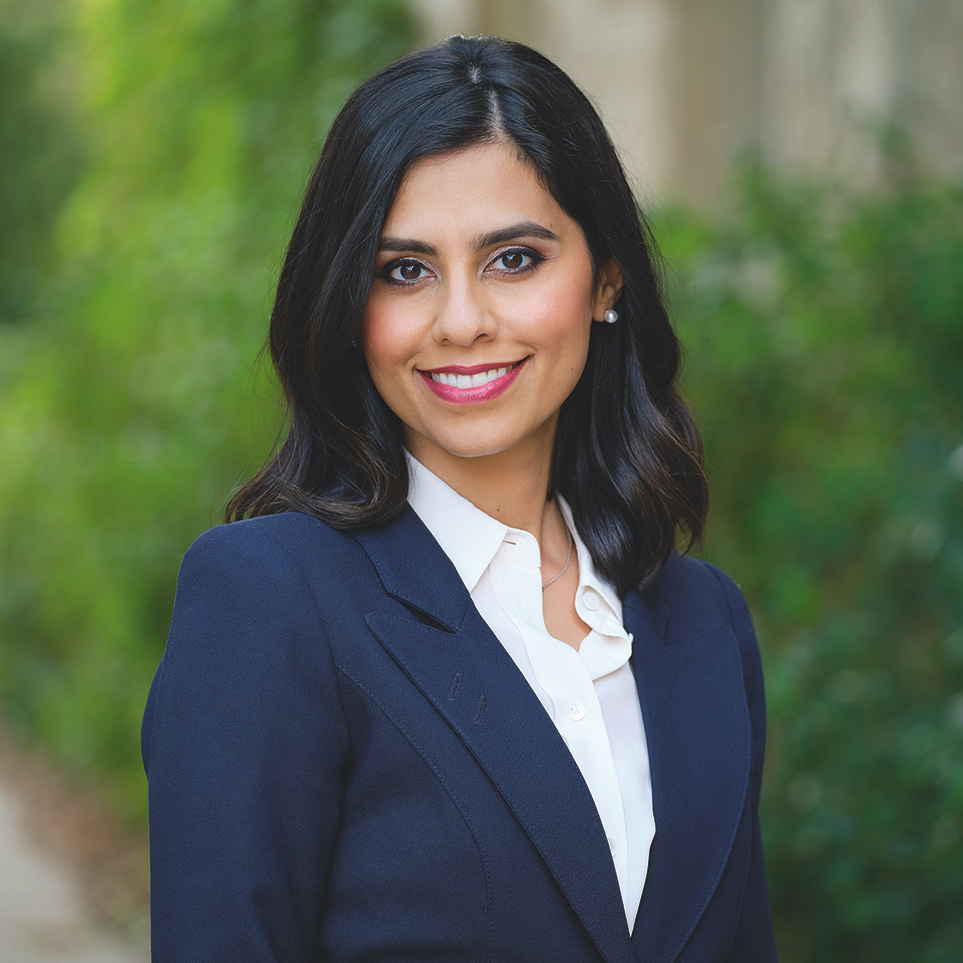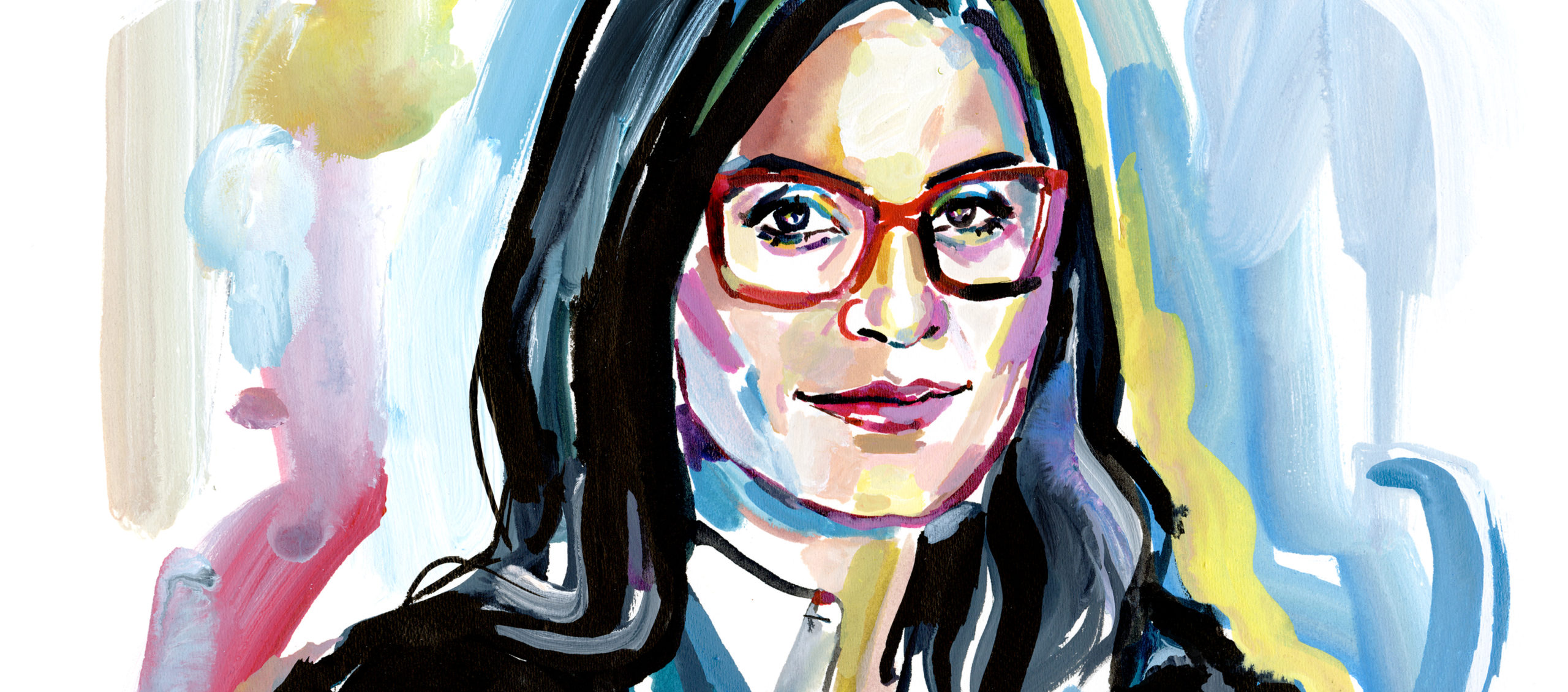As a six-year-old living in Lahore, the second-largest city in Pakistan, Warda Shazadi Meighen knew that her family had to be careful. A constitutional change in the 1970s meant that their religious identity could be considered a criminal offence. Facing the threat of persecution at home, the family sought refugee status in Canada. At the age of seven, Shazadi Meighen settled in Toronto.
Today, she can remember attending legal hearings with her family and gathering around the phone when their lawyer called with updates on their case. At every turn, her family felt the full support of the justice system. “But we were lucky,” she says. Years later, she would discover that not all newcomers to the country receive such a warm welcome. “The more I became entrenched in Canadian society, the more I realized how far there is to go.”
As a young person, Shazadi Meighen decided to one day help other families find safety in Canada. And, in 2007, she arrived at law school at the University of Toronto with that objective in mind. But after graduation, she was swept up in the large-firm recruitment machine. Ultimately, she moved to Manhattan to work as a corporate lawyer at Shearman & Sterling. About two years into that role, she accepted a short-term placement at the United Nations in Tanzania, where she assisted with prosecutions connected to the Rwandan genocide. That brief assignment helped her reconnect to the true reason she chose to study law. “My senses were activated,” she recalls, “as was my notion of justice.”

Warda Shazadi Meighen
Partner, Landings LLP
Year of call: 2010 (Ontario) and 2011 (New York)
Shazadi Meighen returned to New York more motivated than ever to practise in the refugee and immigration field. First, she took a job at the top-tier immigration firm Fragomen, Del Rey, Bernsen & Loewy LLP, where she helped relocate international employees for large multinational companies. About two years later, she moved to the U.K. with her now-husband, Hugh Meighen. He took a position at the London office of his firm, Freshfields Bruckhaus Deringer LLP, while she enrolled in Oxford University’s master’s program in refugee and forced migration studies.
As a student, Shazadi Meighen wrote her thesis on a case that had been led by Waldman & Associates, one of the top refugee and immigration firms in Toronto. In 2015, when she visited Canada to attend a family wedding, she connected with Lorne Waldman, the founder of the firm, through a law-school colleague. Later that year, she moved back to Toronto and joined the firm. (Her husband soon became a partner at Borden Ladner Gervais LLP.)
Finally, she was doing the work she’d long dreamed about. Though the caseload was intense — she often had to balance about 100 files at any given moment — she had the power to make a difference in people’s lives. “Helping someone whose citizenship has been revoked without due process or helping them to be reunited with their child,” she says, “felt very different than completing a great business deal.”
Looking back on that time, Waldman is deeply impressed with the tenacity that Shazadi Meighen brought to her work. “Warda does not settle with the status quo,” he says. “Everyone knows she fully understands the challenges our clients faced because of her own personal experiences as a refugee.”
In early 2019, Shazadi Meighen and her colleague Jacqueline Swaisland started talking about launching their own small firm. Another colleague, Erin Simpson, soon joined the discussion. Together, the trio boasted a skill set of business acumen, market strategy and legal expertise.
By the fall of 2020, Landings LLP had opened up for business. “The name was the hardest part!” laughs Shazadi Meighen. “We wanted something egalitarian and focused on what our clients are reaching out for. They want to land in a place and find a home. It’s about them, not us.”
One of her largest efforts at the new firm has been supporting refugees from Afghanistan after last year’s American military withdrawal. “Warda pulled together an incredible team of pro bono lawyers,” says Simpson, “and advocated at all levels of the international community.”
Outside of her traditional legal practice, Shazadi Meighen also advocates for broader policy change in the refugee and immigration space. For instance, she recently co-authored a report that called on the Canadian government to make immigration pathways available to people who have been displaced by climate change. The report urged swift action, in part because Canada is staring down an “impending wave of forced displacement.”
As a firm owner, running her own show, Shazadi Meighen has more control over her schedule. In the future, she hopes to use that control to spend more time with her young daughters, aged two and four. Most importantly, though, when families need an update on their case, she’s now the lawyer on the other end of the phone. “When we can navigate the system and find solutions for our clients,” she says, “these calls are incredible highs.”
Timeline of refugee and immigration lawyer
2008: After her second year of law school at the University of Toronto, Shazadi Meighen splits her summer between Shearman & Sterling in New York City and McCarthy Tétrault LLP in Toronto.
2009: Law degree in hand, Shazadi Meighen joins McCarthys as an articling student.
2011: Now called to the bar in both Ontario and New York, Shazadi Meighen becomes an associate in the corporate group at Shearman & Sterling.
Summer 2012: During a placement at the United Nations in Tanzania, Shazadi Meighen works on the International Criminal Tribunal for Rwanda. As this role comes to a close, she feels a renewed passion to work on behalf of people who most need legal help.
Fall 2012: Shazadi Meighen joins the New York–based immigration firm Fragomen, Del Rey, Bernsen & Loewy LLP.
2014: She enters the master’s program in refugee and forced migration studies at Oxford University.
2015: After moving back to Toronto, Shazadi Meighen joins the immigration and refugee law firm Waldman & Associates.
2017: She joins the faculty of law at the University of Toronto as an adjunct professor of refugee law.
2020: Along with two colleagues, she co-founds a new immigration and refugee law firm: Landings LLP. “It was time to build something, and do that with people I really respect,” she says. “Though it’s been challenging to launch through COVID, all the intuitions we had about working together are intact.”
This story is from our Spring 2022 Issue.


